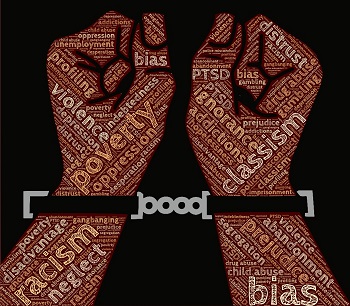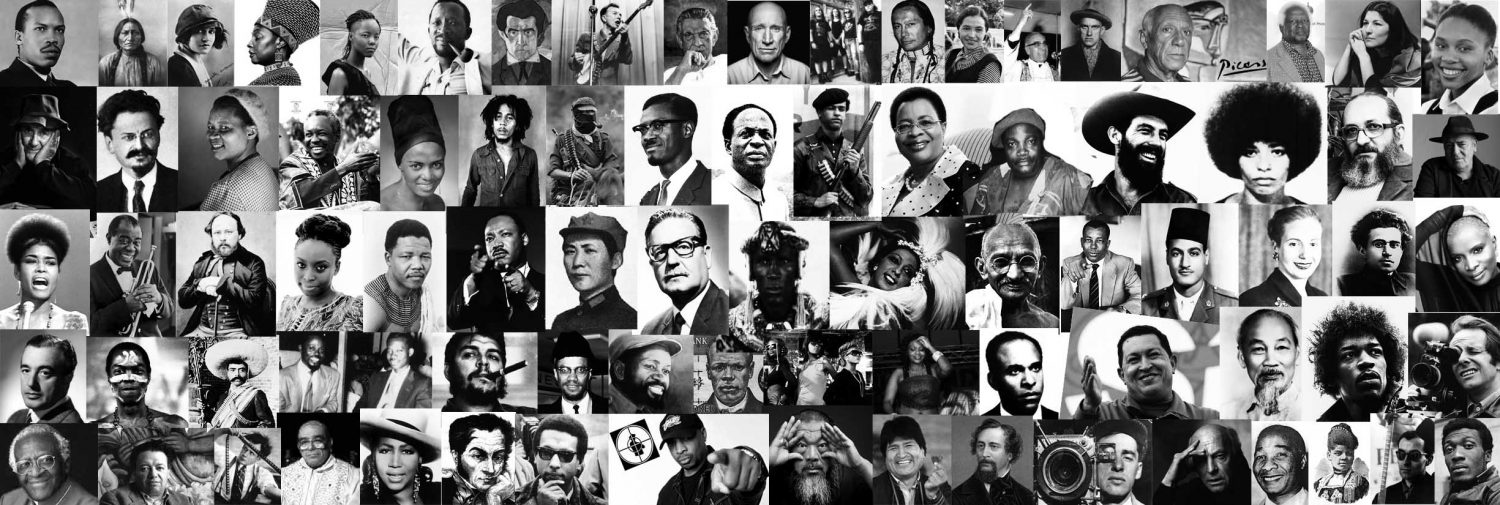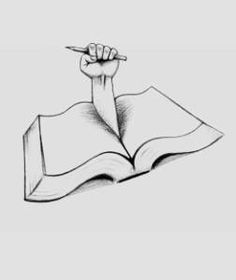There are people in power, using that power for a privileged lifestyle and as a goal in itself. Secondly there is a majority with much less power, in a non-enviable position. The people in power have an interest in keeping things the way they are, while one would suppose that the people with less power, and consequently less wealth, would want to change the set-up so they get their fair share, and have a dignified exisitence. Also a change in society to make us more productive would increase the whole cake for everybody. That seems beneficial for all, but That is not necessarily the case. The privileged now have a lot of power. Making society more productive would require limitations to that power, and the people who spent a career gaining power are not likely to give it up voluntarily.

They can exercise their power with physical violence, and they make sure they have the means to do so. For this they have the Repressive State Apparatuses (RSA here does not mean Republic of South Africa, but Repressive State Apparatus). There are the police, the army, the justice system, prisons. In name these would serve the interests of society but in practice they serve the ruling class. The police are used to kill dissidents like Robert Chasowa and the demonstrators in 2011. The justice system keeps the poor on remand for unlimited time, and the rich buy themselves out with bail or bribes.
This physical repression however is expensive and can only go so far. It is much cheaper and more effective to keep the population in control without the exercise of physical power. For this the ruling class uses the Ideological State Apparatuses (ISAs). These are the media, the school, the church and such. They keep the population in line by indoctrinating them with the norms and values of the ruling class. Of course the government (personified by the President) has control over public media and public schools. Even private media and private schools are owned by the rich: a poor person cannot afford to start a newspaper or television station. The state controls the content of exams, which controls the content of lessons in schools. So the ruling class has control over all these institutions. They use this control to adjust our mindset to their advantage.
Probably the most effective ISA is the education system. Here we learn at a young age, when our minds are still easy to mold into the shape useful for the ruling class. In school we learn skills useful for the ruling class: if we can calculate we can do their administration for them. If we can write we can spread the ruling class ideology in newspapers. If we can operate electronics we can spread ruling class ideology via radio and television. But there is another dimension, which is more useful for the ruling class: in school we learn to obey the powerful. We are punished with low grades or sometimes even physical violence if we don’t do as we are told. We learn to not question authority, to not investigate why we are in such an un-enviable position. We learn that we need to do as we are told, that it is our own problem that we live in such bad conditions, and that (no matter how bad the economy) we need to start a business if we do not have an income. And we learn that we get fired for asking questions. Our school system conditions us for the interests of the ruling class.
We need to change that. We need a school system that stimulates our imagination, that encourages independent thinking, that teaches us to question: why do others have power over us? Why do some have so much and do so many have so little? What is patriotism? Why does someone have the power to tell me what to do? Why does someone have the power to order his Police to shoot at us with live ammo? Why can we vote only for ruling class candidates? Why are we represented so badly? Why should we be represented by rich old men, instead of ruling ourselves?
We need education for critical consciousness. There are methods for this available.
We could do it if we chose. But what we do is walk in line to stay out of trouble. Consequently we do not develop, we stay with the same situation: a ruling class that steals our hard earned money, places itself above the law, does not represent the population and lives an opulent lifestyle. And a population that for the most part lives in abject poverty. That is not the way our life should be and we should teach our upcoming generation to ask the hard questions, and to draw the consequences. To be patriotic, which is not afraid to stand up and say the truth. Not afraid to organize. Not afraid to protest. Not afraid to question the status quo that is good only for the ruling class: the rich, the powerful, the privileged.



